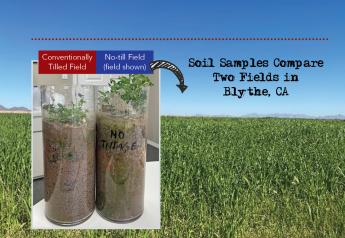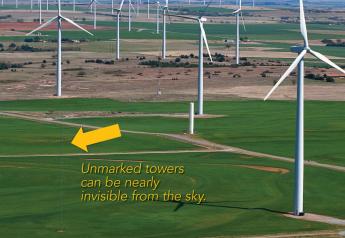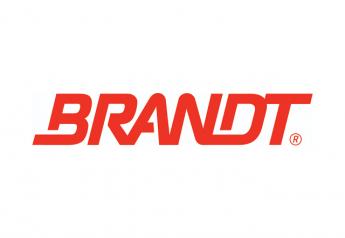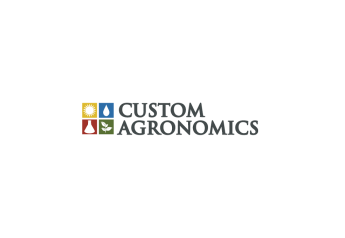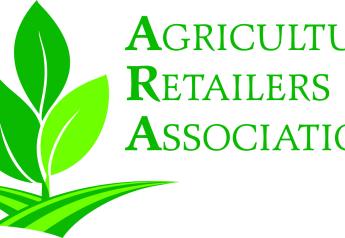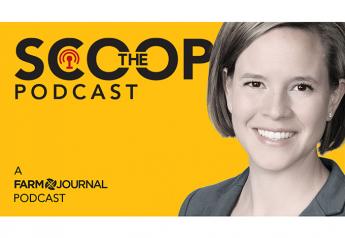CCAs Help Reduce Nitrogen Losses in Illinois

Certified Crop Advisors (CCAs) across the country routinely address pests, diseases, weeds and other agronomic issues with their farmer-customers. In Illinois, CCAs are also working closely with industry stakeholders to address and reduce the amount of nitrogen and phosphorus the state contributes annually to the Gulf of Mexico.
“CCAs are instrumental in providing guidance to farmers on the 4R practices--right rate and right source of nutrients, at the right time and in the right place--that improve nutrient utilization and reduce nutrient losses,” says Lisa Martin, coordinator for the Illinois CCA program.
To date, 64 individuals in Illinois have prepared for, and passed, the exam to become certified as a 4R Nutrient Management Specialist (4R NMS). This is double the number of 4R NMS in any other state. Last year, 45 Illinois CCAs achieved the 4R NMS, while 19 individuals have been certified so far in 2017. They include:
- Jared Bergmann, Vienna IL
- David Brummer, Taylorville IL
- Greg Creech, Hartford City IL
- Joseph Franks, Reynolds IL
- John Niemeyer, Martinsville IL
- Daniel Maggart, DeLand IL
- William Kurz, Ellisville IL
- Tim Wolfe, Clinton IL
- Scott Lee, Durand IL
- James Donnelly, Walnut IL
- Christopher Kloker, Pittsfield IL
- Joshua Valier, Pinckneyville IL
- Adam Day, Ottawa IL
- Richard Reineke, St. Peters IL
- William McDonnell, Ottawa IL
- Nolan Paxton, Prophetstown IL
- Kevin Moore, Mound City IL
- Dennis Godar, Rochester IL
- David Rahe, Hillsboro IL
“Our CCAs are a really diverse group of people, including farmers, seedsmen, chemical salesmen and representatives from regulatory,” Martin says.
Defined Goals. Illinois holds the dubious distinction of contributing more nutrients to the Gulf than any other single state. The Illinois Nutrient Loss Reduction Strategy, established by the state Environmental Protection Agency, has a goal to reduce nitrogen losses by 15% and phosphorus losses by 25% by the year 2025.
So far, collective efforts by industry stakeholders across the state have contributed to an overall reduction of 11% in the amount of nitrogen going from Illinois to the Gulf, notes Jean Payne, IFCA president. A 2016 study by the University of Illinois reports that the nitrate load in the Illinois River alone from 2010 to 2014 was 10% less than the average load in the 1980s and early 1990s.
“Those are strong indications we’re on our way to meeting the nitrogen goal within the next seven years,” Payne says.
She attributes much of the state’s success to the domino effect that occurs when CCAs work with growers. “Every CCA who listens to a presentation or participates in a training program then takes that knowledge home to 40 or so farmers, so you get this huge exponential impact,” she notes.
While Illinois has made headway with nitrogen, that’s not the case with phosphorus. Payne says much of the phosphorus in Illinois rivers is attributed to treatment plants and their need to upgrade nutrient removal systems to better manage wastewater from the urban sector.
“They understand phosphorus is their big lift, while the nitrogen issue is agriculture’s big lift,” she notes.
Scott Lagger says CCAs have addressed the issue of nitrogen loss by working closely with farmers to improve product management and application timing.
“We used to put most of our N on fields in the fall, but very little of that happens now,” says Lagger, current chairman of the Illinois CCA program and an agronomy salesman with CHS Inc.
Instead, farmers in the state increasingly use split nitrogen applications to meet their crop fertility needs.
“More than half of our growers sidedress corn now, and a number run custom sidedress bars,” he says. “Increased yield performance more than pays for the additional fuel cost, equipment wear-and-tear and time invested.”
More CCAs Needed. As the agricultural industry continues to address the issue of nutrient loss in Illinois and other states, there will likely be an increased role for CCAs to play in the process.
“We need to make sure that we have people who are skilled and passionate about nutrient management, and that we give them a pathway to demonstrate that,” says Andy Knepp, immediate past chairman of the International CCA Board and the Monsanto regional technology lead for Illinois and Wisconsin.
Knepp adds that CCAs can also provide a valuable bridge between farmers and consumers. “We can help farmers meet their market needs and also help consumers understand what it is we’re doing in production agriculture,” he says.
Payne agrees. She says by continuing to demonstrate strong leadership and accountability in nutrient management, CCAs are helping to ensure that agriculture’s efforts to reduce nutrient losses remain within a voluntary framework that makes progress, assures profitability for farmers and utilizes science-based approaches for enhanced nutrient management.
The next opportunity for Illinois CCAs to sign up to take the 4R NMS exam will be in October 2017. For more information on the exam, call Lisa Martin at (815) 844-6677; to learn more about the fertilizer industry’s efforts to reduce nutrient losses, contact the Illinois Fertilizer & Chemical Association (IFCA) at (309) 827-2774.


